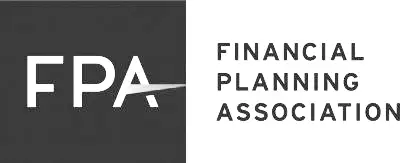Retirement rules of thumb can give you a false sense of security.
Today you’ll learn why you should second guess these 4 commonly referenced retirement rules.
In this episode, we’ll discuss:
- what these retirement rules of thumb are
- where they came from
- why they aren’t the best prescriptions for success in retirement
- what you should do instead of relying on these common retirement norms
You need a certain dollar amount to retire
You may remember the ads from years ago with people walking around with a number atop their heads. That (very specific) number represented the amount they needed to retire. That may be where this rule stemmed from.
Many people think that if they could just get to a specific dollar amount saved, then they’ll feel confident enough to retire. However, these goalposts always seem to keep moving.
There are many unknowns on your financial journey:
- the stock market
- inflation
- taxes
- the death of a partner
- or a long-term care event
- the list goes on
This is why it is important to prepare yourself and your portfolio for the unexpected.
Rather than trying to reach a magic number, see what sustainable spending level you should shoot for based on the lifestyle that you want to live.
You should have no debt in retirement
While this rule may have historically been more important to follow, with many people’s low mortgage rates, carrying a mortgage in retirement might make sense.
Paying off your house could remove flexibility from your portfolio. Having your assets in diverse tax situations is essential to optimizing your lifetime tax rate. With proper planning, you can take advantage of retirement’s myriad tax planning possibilities.
Another reason you may not rush into paying off your house is that you could have a higher rate of return by investing the money vs. paying towards a low-interest mortgage.
The 4% rule
The 4% withdrawal rule came out in the 90s and people have latched onto it ever since.
Using the 4% rule as your guide means that you will withdraw 4% of your portfolio balance each year to ensure that you have enough funds for the rest of your life.
That sounds fantastic if you are worried about running out of money in retirement. However, it isn’t very practical for use beyond the spreadsheet.
Each financial plan should be personalized to fit your specific needs. A financial plan should also be flexible so that you can adjust your spending levels up or down based on inflation, the stock market, spending, and the sequence of return risk.
When you should retire
This rule of thumb is starting to relax due to the pandemic and the FIRE movement (financial independence retire early).
Age 65 has been the standard age of retirement for a long time due to it being the age to qualify for Medicare. However, many don’t quite make it to 65 due to their health, layoffs, or other reasons. Nowadays, people are starting to rethink their age of retirement.
Remember that everyone’s circumstances are different and you don’t have to play retirement by the book. Just because you got your AARP card in the mail doesn’t mean that you have to retire.
Listen in to learn just how important it is to have a retirement plan that lays out your personal investment, withdrawal, and giving strategies.
Check out our expanded pre-retirement checklist
Our expanded pre-retirement checklist is packed with common questions asked by our clients.
Our new guide answers 4 questions you should ask about Social Security, includes common tax planning tools used by retirees and examines how your investing may change in retirement. Download this newly revised and expanded checklist to improve your retirement.
Outline of This Episode
- [1:34] How the first rule of thumb came to be
- [7:21] Debt in retirement
- [12:38] The 4% rule
- [18:10] When you should retire
- [23:06] Download our newly revised pre-retirement checklist
Resources & People Mentioned
- Download the Retire on Purpose Guide
- Episode 89 – How Sequence of Returns Risk Could Impact You
- Mortgage vs. Invest comparison






